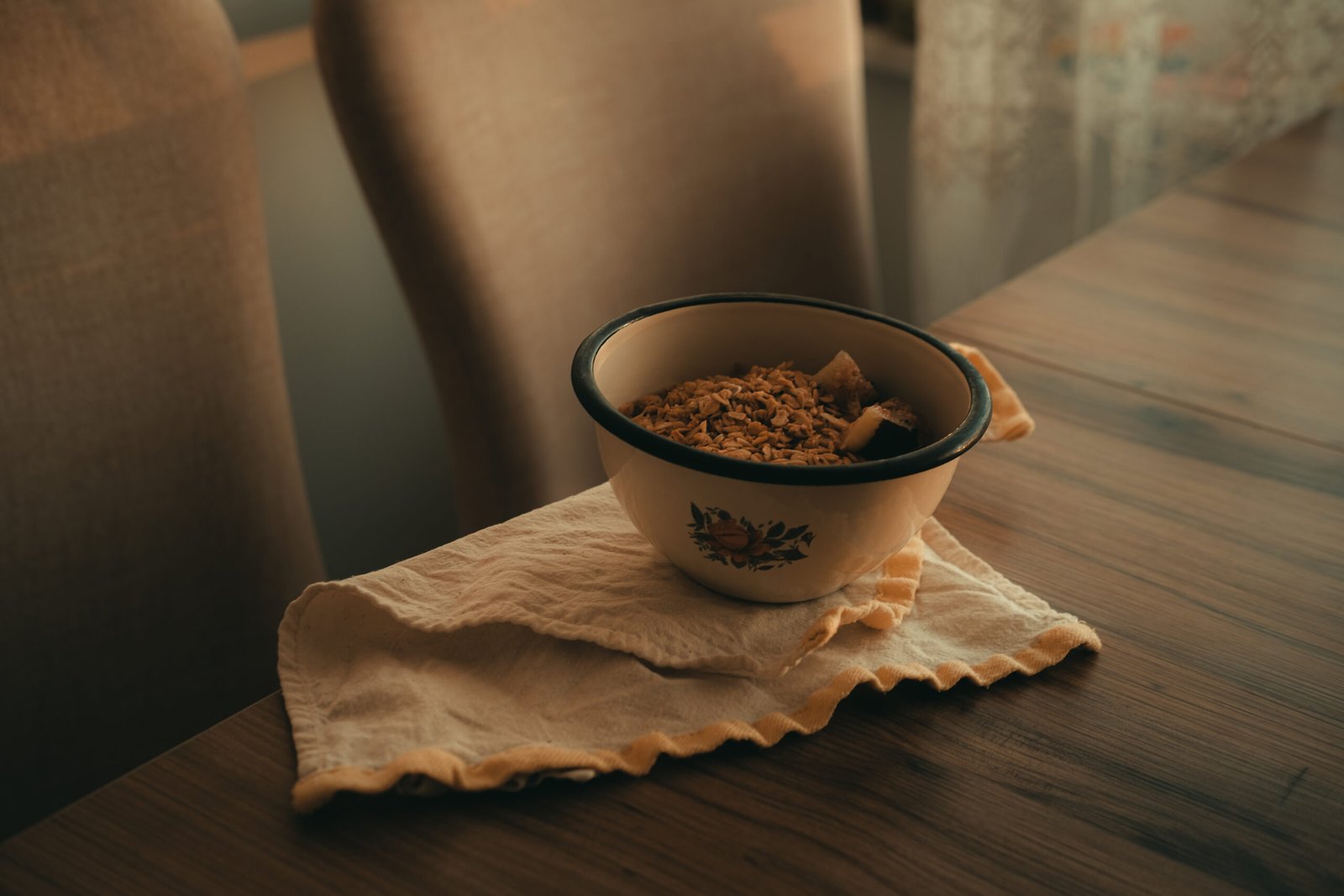Get ready to become a culinary pro with these efficient tips for food preparation. Whether you’re a beginner or a seasoned cook, these tricks will not only save you time and money but also elevate the flavors of your dishes. From simple techniques to handy shortcuts, you’ll discover the secrets to making tasty meals with ease. Streamline your kitchen routine and unleash your inner chef with these efficient food preparation tips.

This image is property of images.pexels.com.
Planning your Meals
Meal planning is an essential step in efficient food preparation. By creating a weekly meal plan, you can save time, money, and energy. Start by thinking about the types of meals you want to have each day, taking into consideration your dietary preferences, nutritional needs, and the ingredients you already have at hand. This will help you come up with a variety of meal ideas for the week.
Once you have your meal ideas, it’s time to make a shopping list. Take note of all the ingredients you will need for each meal and check your pantry to see if you already have some of them. This will help you avoid buying unnecessary items and ensure that you get everything you need for the week. Having a well-organized shopping list will also make your grocery shopping experience much smoother.
Prepping ingredients in advance is another great way to streamline your meal preparation process. Take some time at the beginning of the week to chop vegetables, portion out meat, and prepare any sauces or marinades you will need. This will save you precious minutes when it comes time to cook, as you can simply grab the pre-prepped ingredients and start cooking immediately.
Organizing your Kitchen
Having an organized kitchen is key to efficient food preparation. Start by arranging your tools and utensils in a way that makes sense to you. Keep frequently used items within reach and group similar tools together. This will save you from rummaging through drawers and cabinets every time you need something.
Next, tackle your pantry and refrigerator. Keep your pantry well-stocked with essential items such as spices, oils, and canned goods. Use shelf dividers or clear containers to keep everything organized and easily visible. In the refrigerator, assign specific areas for different food groups and use organizers to maximize space. Regularly declutter and remove expired or unused items to make room for new ingredients.
Maintaining a clean kitchen is essential for efficient food preparation. Make it a habit to wipe down surfaces after each task to prevent cross-contamination and keep your workspace tidy. Wash dishes and utensils immediately to prevent them from piling up and becoming a hassle to clean later. Storing ingredients back in their designated places as soon as you’re done with them will also help maintain a clutter-free kitchen.

This image is property of images.pexels.com.
Time-Saving Cooking Techniques
When it comes to cooking efficiently, there are several time-saving techniques you can employ. Batch cooking is one such technique where you cook a large quantity of food at once and store it for future meals. This is especially helpful for busy individuals or families who want to have homemade meals but don’t have the time to cook every day.
One-pot meals are another fantastic time-saving option. By cooking all your ingredients in a single pot or pan, you minimize the number of dishes to wash and the time spent on meal preparation. These meals are often flavorful and hearty, making them perfect for quick and easy weeknight dinners.
Cooking in bulk is a great way to save time and money. By preparing large batches of certain dishes or ingredients, you can portion them out and freeze them for later use. This way, you’ll always have a delicious and homemade meal ready to go without the need for extensive cooking every day.
Prepping Meat and Vegetables
Properly defrosting meat is an important step in food preparation to ensure even cooking and prevent any potential foodborne illnesses. The best and safest way to defrost meat is by transferring it from the freezer to the refrigerator and allowing it to thaw slowly. This method ensures that the meat stays at a safe temperature throughout the defrosting process.
Marinating meat not only adds incredible flavor but also helps tenderize tougher cuts. Plan ahead and marinate your meat the night before or even a few hours in advance to maximize the depth of flavor. Use different marinades to add variety to your meals and experiment with different seasonings and ingredients to create mouthwatering dishes.
Chopping techniques play a significant role in efficient food preparation. Invest in a good quality chef’s knife and practice proper knife skills to make chopping easier, safer, and quicker. Mastering various cutting techniques, such as slicing, dicing, and chopping, will not only save you time but also improve the presentation of your dishes.

This image is property of images.pexels.com.
Maximizing Leftovers
Leftovers can be a true time and money saver when it comes to efficient food preparation. Instead of letting leftovers go to waste, get creative and reinvent them into new dishes. For example, leftover roasted chicken can be added to salads, sandwiches, or even turned into a delicious chicken pot pie. This not only saves time but also reduces food waste and ensures you enjoy tasty meals throughout the week.
Freezing leftover portions is another great option. Simply portion out your leftovers into freezer-safe containers or bags and store them for future use. Label them with the contents and date for easy identification. These frozen leftovers can be defrosted and enjoyed on busy days when you don’t have the time or energy to cook from scratch.
Creating meal schedules with leftovers is a clever way to plan your meals and ensure that nothing goes to waste. By strategically incorporating leftovers into your meal plan, you’ll not only save time but also create a harmonious balance of flavors and ingredients. For example, you can plan to have a leftover stir-fry for lunch the next day by intentionally cooking a larger portion the night before.
Choosing Quick and Easy Recipes
When efficiency is the name of the game, quick and easy recipes are your best friends. Look for 30-minute meals that require minimal prep and cook time. These recipes often use simple, readily available ingredients, allowing you to whip up a delicious and satisfying meal in no time.
No-cook recipes are perfect for days when you don’t want to spend any time near the stove or oven. From refreshing salads to hearty sandwiches, these recipes rely on the freshness and quality of ingredients rather than cooking techniques. They are not only time-saving but also ideal for warmer days when you crave something light and refreshing.
Using pre-packaged ingredients can be a lifesaver on busy days. While homemade is always preferred, pre-packaged ingredients, such as pre-cut vegetables or frozen pre-seasoned proteins, can significantly cut down on prep time without compromising too much on flavor. Just make sure to read the labels and choose high-quality options to ensure a tasty end result.
Assessing your Kitchen Equipment
Investing in time-saving appliances is a game-changer when it comes to efficient food preparation. Consider appliances such as a slow cooker or Instant Pot, which allow you to set it and forget it while your meal cooks. These appliances are perfect for making soups, stews, and even complete meals with minimal effort.
Utilizing multi-functional tools can save valuable kitchen space and make your meal preparation more efficient. Look for tools that serve multiple purposes, such as a blender that can also function as a food processor or a grater that comes with different attachments for various types of grating or slicing. This way, you can streamline your cooking process without cluttering your kitchen with numerous single-purpose gadgets.
Organizing tools by efficiency is a simple yet effective way to save time during food preparation. Keep your most frequently used tools within reach, such as spatulas, spoons, and tongs, in a designated drawer or utensil holder near your cooking area. This way, you won’t waste time searching for the right tool and can focus on the task at hand.
Optimizing Cooking Efficiency
Preheating your oven efficiently is an often overlooked aspect of food preparation. To save time and energy, preheat your oven while you’re prepping your ingredients. By the time you’re ready to put your dish in the oven, it will be hot and ready, cutting down on overall cooking time.
Using the right size cookware is essential for efficient cooking. Using a larger pan than needed can result in longer cooking times and uneven heating. Conversely, using a smaller pan may cause overcrowding and interfere with proper heat distribution. Choose the appropriate size cookware for your recipe to ensure efficient and even cooking.
Utilizing multiple burners effectively can significantly speed up the cooking process. When a recipe calls for different cooking techniques simultaneously, such as boiling pasta while sautéing vegetables, make use of multiple burners to get everything done in less time. This will reduce the overall cooking time and allow you to enjoy your meal sooner.
Cleaning as You Go
Washing dishes and utensils immediately after use is a simple yet effective way to maintain a clean and organized kitchen. This prevents a pile-up of dirty dishes and keeps your workspace clutter-free, allowing you to move on to the next task without any interruptions. Consider using a dishwasher if you have one, as it can save you time and make the cleaning process even more efficient.
Wiping down surfaces after each task is a habit that can make a significant difference in maintaining a clean kitchen. This not only prevents cross-contamination but also saves time in the long run. By quickly wiping down counters and cutting boards, you ensure that your workspace is clean and ready for the next step.
Storing ingredients when they’re no longer needed is a crucial aspect of efficient food preparation. Rather than leaving ingredients out on the counter, put them back in their designated places immediately after you’re done using them. This will prevent clutter and ensure that you can find everything you need quickly the next time you cook.
Mastering Knife Skills
Holding and handling knives properly is the foundation of efficient food preparation. Grip the knife firmly but not too tightly, with your index finger and thumb resting on the blade’s bolster or spine. This will give you control and precision while cutting, reducing the risk of accidents.
Proper knife sharpening is essential for efficient and safe cutting. A sharp knife cuts with ease and reduces the need for excessive force, making your chopping tasks quicker and more efficient. Sharpen your knives regularly using a sharpening stone or a knife sharpener to maintain their sharpness and effectiveness.
Slice, dice, and chopping techniques are fundamental skills for any home cook. Practice these techniques to become more efficient in the kitchen. Learn how to slice vegetables thinly and evenly, dice onions with speed and precision, and master the art of chopping herbs and garlic. These skills will not only save you time but also elevate the presentation of your dishes.